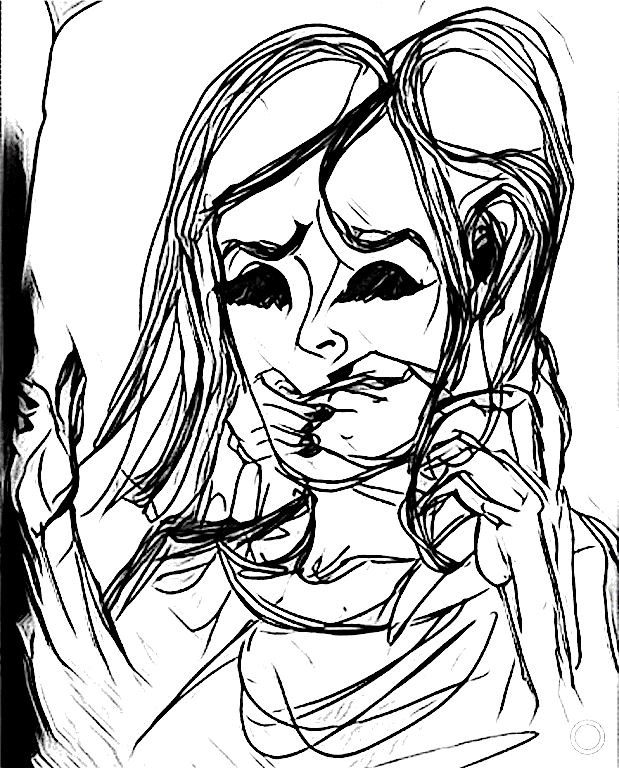
Content Warning: This article contains references to suicide and depression.
In the summer of 2016, I thought I was at the top of my game — careerwise, that is. My personal life had taken the backseat for years. Fifteen years with the United Nations in Iraq, Afghanistan, Jerusalem and Syria had turned my naive young soul into a battle-hardened veteran. I was a supergirl who could handle anything — as I saw colleagues die and was bombed and shot at, I believed I was saving humanity. During that summer, I had been involved in the Syria ceasefire negotiations. By that fateful August in Geneva, we were nearing the fruition of a Kerry-Lavrov agreement. I was on a high.
Then came the call that changed everything. “They found our Giannakis,” my father said, his voice crackling on the other end. All of four words, five in Greek, and life had come to an end. “Giannakis” referred to my beloved younger brother, Giannis, who had gone missing overnight and was found dead three days into his birthday — the last time we spoke.
The following 48 hours are a blur. I was on autopilot, put on a flight back home, ran into my mother’s arms and woke up with hollow screams. During the funeral, I whispered the things I’d never told Giannis over the priest’s readings. Five days later, I was back at work. I didn’t know any better.
Two months of shock and denial later, a colleague forwarded Dean Yates’ article on his hospitalization. I wrote back, panicking. “Are you suggesting I have PTSD?” I asked. “No, I’m saying I do,” my colleague responded.
My brother’s suicide pulled the plug on all kinds of trauma that I had been silently suffering with, both generational and war-zone inflicted. During that period of my life, I made my friends promise that if I ever ended up in a psychiatric ward, they’d come extract me. I was sure I would die of a broken heart — that my mind-numbing pain would render me crazy. I became obsessed with “processing” my grief. True to type, I was trying to intellectualize it too: Giannis’ act and the aftermath. I delved into self-help books, none of which were helpful bar one titled “Grieving the Loss of a Sibling.” I created my own word association games (A for anguish; B for bereaved; C for chills; D for dementia; E for enraged; …). I began to separate my Greek-speaking childhood from my English-speaking adulthood. Anything related to the former was hell. I sent one-line questions over text to anyone who would listen. I defied expert advice to “Let your feelings be what they are. They will not destroy you, they will relieve you.” I ignored a friend that told me to listen to my body, which was, by then, screaming.
Little did I know that just over a month later, I would check myself into a crisis center — and later, a clinic — and be diagnosed on the spot with PTSD and severe depression. The first responder asked me, “Why on earth did it take you so long? Given your line of work, you should have known!”
By the time I entered the crisis center, I had lost 12 kilos. I was, at the same time, hanging on by a thread in a never-ending abyss. I couldn’t eat, drink, sleep or be awake; I couldn’t read, listen to music, watch TV, bear certain words or loud sounds. You get the picture. I was alive, yet dead. Above all, I wanted to be left alone, tired of explaining myself — tired of excusing him.
Three months into the clinic, I had five therapists (not including art): a psychiatrist who only prescribed medicine, a psychologist who was barely there; Priscilla Queen of my Desert; my Eye Movement Desensitization and Reprocessing therapist in town and a Scottish somatic therapist. I also had phototherapy, bibliotherapy and retail therapy. The last of which was a particularly good sign, alongside my propensity to “whip the clinic into shape.”
It took me time to adjust to the clinic. It was very much like Little House on the Prairie, literally. All very Swiss and proper.
I was left to my own devices, one friend’s phrase echoing in my mind. “You don’t want to die. You just want the suffering to stop.” Another friend reminded me, “You are going into your own nothingness a little bit. It’s going to be ugly — there’s no way to do this nicely!”
It is now November 2018 — a year and half since I extracted myself from self-imposed isolation. I tell you this story because mental illness is real, despair is commonplace, depression does not discriminate, anxiety is not a phase, suicide haunts our closest, PTSD is not just for veterans and everyone has a story, regardless of age or circumstance. There is no cast for a broken soul. When you find yourself in the middle of the blast, seize the awkward. Listen to your body. Take your healing time. Protect your heart.
I was told that anger would be the most difficult part of my grief, and guilt the most unfair. I had to be a warrior. For the last two years, my job — moment by moment — was to survive. Now, two years later, I want to live. Suicide won’t have the last word on my brother’s story, and neither will depression on mine.
Elpida Rouka is a 2018 Maurice R. Greenberg World Fellow and most recently served as Chief of Staff to the UN Special Envoy on Syria. Contact her at elpida.rouka@yale.edu .







